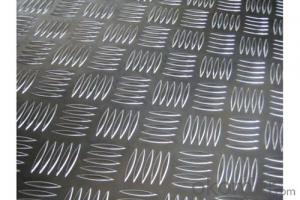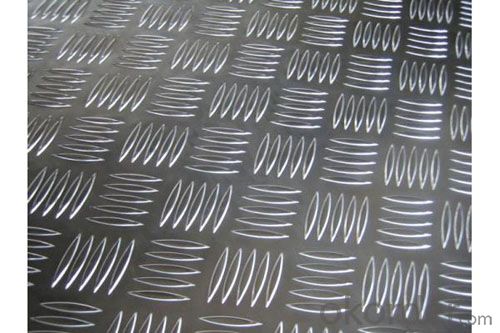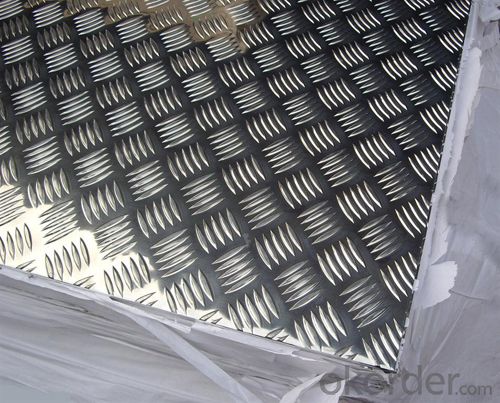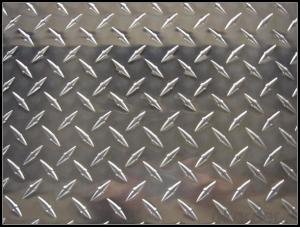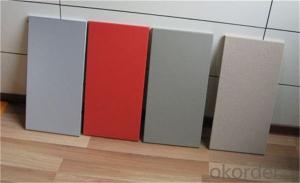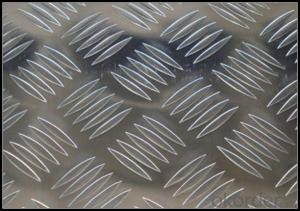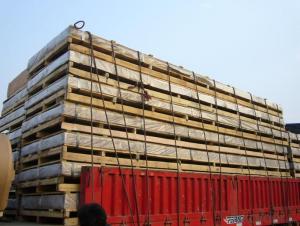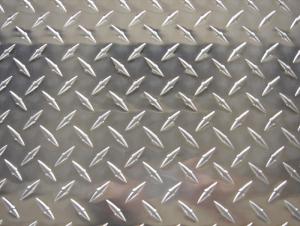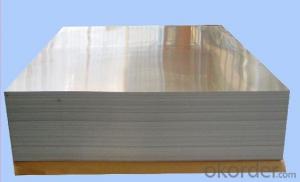5 X 8 Aluminum Diamond Plate Sheets - China Supplier Aluminum Tread Plate 6061 Alloy
- Loading Port:
- China main port
- Payment Terms:
- TT OR LC
- Min Order Qty:
- 3 m.t.
- Supply Capability:
- 5000 m.t./month
OKorder Service Pledge
OKorder Financial Service
You Might Also Like
Specification
1.Specifications of China Supplier Aluminum Tread Plate 6061Alloy
Product Type | Aluminium plate, Aluminium sheet, Aluminium coil, Aluminium strip.etc |
Product Martial | 1xxx series,3xxx series,5xxx series, 6xxx series,8xxx series |
Hardness state | HO,H14, H16, H18, H24,H22.etc |
Product Size | Thickness:0.1mm-10mm, 100mm Length :2000mm - 8000mm Also accept customized |
Surface Treatment | Mill finished |
Processed | Aluminium 5 bar, embossed plate, aluminium per-printed coil, aluminium tile,etc |
Min order quantity | 5 tons |
Short lead time | 15-30 days |
Application | Architectural/Decoration,Household,Transformer,Appliance,Transportatio, etc |
Month Capacity | 5000 tons |
Accepted Payment Type | T/T,L/C |
2. Application of China Supplier Aluminum Tread Plate 6061Alloy
(1).Interior: wall cladding, ceilings, bathrooms, kitchens and balconies, shutters, doors...
(2).Exterior: wall cladding, facades, roofing, canopies, tunnels,column covers , renovations...
(3).Advertisement: display platforms, signboards, fascia, shop fronts...
3. Feature of China Supplier Aluminum Tread Plate 6061Alloy
*Such coil is specially designed to replace aluminum ingot, due to the high export tax of aluminum ingot, the coil has better price than ingot.
*This type of coil can fit customer's remelting furnace just like ingot, no need to make any change to the production line that was previously used for ingot. The standard coil size and weight is very suitable for the feed gate of furnace.
*This type of coil causes less material wastage than ingot when remelted.
*Our coil is made directly from ore, no need to go though the ingot making process, quality is much better than other suppliers who use ingot scrap to make coil.
Be free from Oil Stain, Dent, Inclusion, Scratches, Stain, Oxide Dicoloration, Breaks, Corrosion, Roll Marks, Dirt Streaks and other defect which will interfere with use
4. Certificate:
SGS and ROHS(if client request, paid by client), MTC(plant provided), Certificate of Origin(FORM A, FORM E, CO), Bureau Veritas and SGS (if client request, paid by client), CIQS certificate
5. Image of China Supplier Aluminum Tread Plate 6061Alloy
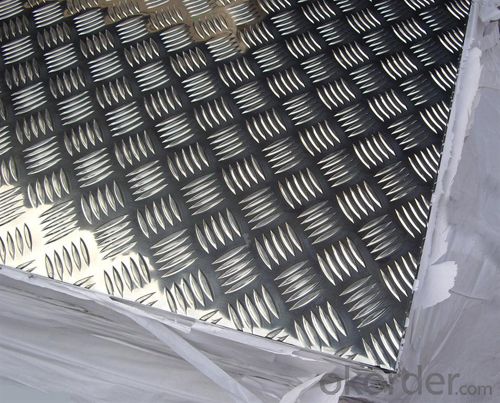
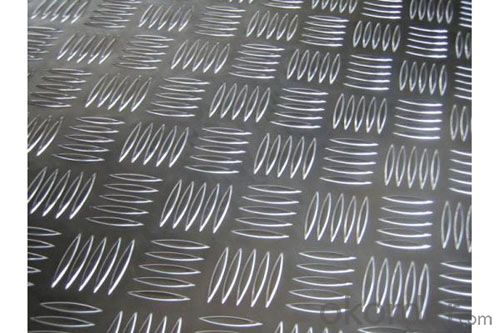
6. FAQ
1) What is your delivery time?
Our regular production time is over 30 days, It depends on the order quantity also.
2) What is your payment term?
We accept T/T, LC at sight, Usance LC 30, 60, 90, 120, 180 DAYS.
3) What is your price structure?
Our foil price is based on Shanghai Metal Price(SMM), not LME, but we could offer LME+ Conversion for your reference.
4) What is your Delivery term?
We do FOB, CFR, CIF, we don't do DDP.
5) Could you offer sample?
We could offer sample as your requirement. A4 Size sample is free for you, for bigger roll sample, it depends on the coil weight.
- Q: Are aluminum sheets suitable for wastewater treatment applications?
- Yes, aluminum sheets are suitable for wastewater treatment applications. Aluminum is highly resistant to corrosion and can withstand harsh chemicals commonly found in wastewater. Additionally, aluminum sheets can be easily formed into various shapes and sizes, making them suitable for use in tanks, pipes, and other wastewater treatment equipment.
- Q: How can I make aluminum oxide?
- Visit this link: okorder ... Hope it's useful to you!
- Q: Is it possible to incorporate windows made from recycled materials into a construction project?
- <p>Yes, you can use windows made from recycled materials in your project. There are eco-friendly windows available that are manufactured using recycled glass or other sustainable materials. These windows can offer similar performance to traditional ones while reducing the environmental impact of your construction. It's important to check the quality and certifications of the recycled windows to ensure they meet your project's requirements.</p>
- Q: Can the export quality of China's aluminum plate meet the requirement of ASTM B 209? Is this requirement for our country? Master the exhibitions, O (a _ U) O thank you
- ASTM B209 standards for aluminum materials developed by us Materials LaboratoryThe corresponding domestic standards for GB/T 3880, but 3880 standards in many places and B209 there are many differences, some domestic manufacturers can be produced in accordance with B209.
- Q: Are aluminum sheets suitable for aircraft manufacturing?
- Indeed, aircraft manufacturing finds aluminum sheets to be highly suitable. The aerospace industry extensively utilizes aluminum owing to its exceptional blend of qualities, encompassing its lightweight nature, robust strength, ability to withstand corrosion, and outstanding malleability. Such attributes render aluminum an optimal substance for constructing diverse aircraft elements, including fuselages, wings, and structural components. Furthermore, aluminum alloys can be effortlessly fused, facilitating efficient manufacturing procedures. In totality, aluminum sheets assume a pivotal function in aircraft manufacturing, substantially enhancing the aircraft's overall performance, durability, and safety.
- Q: I have tried every possible one and every time i put it on it makes the smell 10x worse. It doesn't help at all it only makes it worse. Has ANYONE found one that actualy works? I hear that aluminum causes problems like alzheimer's.
- use a peach smelling 1 it works 4 me! thankz 4 the best awnser!!!!!!!!!!!!!!!
- Q: How does the purity of aluminum affect its properties as a sheet?
- The purity of aluminum plays a significant role in determining its properties as a sheet. Higher purity levels of aluminum generally result in improved mechanical properties, thermal and electrical conductivity, as well as better corrosion resistance. When aluminum is highly pure, meaning it has a low level of impurities, it becomes more malleable and ductile, making it easier to form into thin sheets. This makes highly pure aluminum sheets more suitable for applications where intricate shapes and designs are required. Additionally, the high electrical conductivity of pure aluminum makes it an excellent choice for electrical applications, such as wiring and circuit boards. It allows for efficient transmission of electricity and reduces the risk of overheating. Moreover, the thermal conductivity of pure aluminum makes it an ideal choice for heat transfer applications. Aluminum sheets with high purity can efficiently dissipate heat, making them well-suited for applications such as heat sinks and radiators. Furthermore, the corrosion resistance of aluminum increases with higher purity. Pure aluminum forms a protective oxide layer on its surface, which helps prevent corrosion and extends the lifespan of aluminum sheets in various environments. In summary, the purity of aluminum directly affects its properties as a sheet. Higher purity levels enhance its mechanical properties, electrical and thermal conductivity, as well as corrosion resistance, making it more versatile and suitable for a wide range of applications.
- Q: What are the safety standards for using aluminum sheets in construction?
- <p>Yes, there are safety standards related to using aluminum sheets in construction projects. These standards ensure the material's structural integrity, durability, and safety. They include specifications for thickness, strength, and quality of aluminum sheets, as well as guidelines for their installation to prevent issues like corrosion, fire hazards, and structural failure. Compliance with these standards is crucial for the safety of the construction workers and the longevity of the building.</p>
- Q: What is the thermal expansion coefficient of aluminum sheets?
- The thermal expansion coefficient of aluminum sheets is approximately 23.1 x 10^-6 per degree Celsius. This means that for every degree Celsius increase in temperature, the aluminum sheet will expand by 23.1 parts per million in length. This coefficient may vary slightly depending on the specific alloy and manufacturing process of the aluminum sheet.
- Q: 1) Aluminum ore is not formed in Quebec (why not?) 2)but aluminum ore is smelted into aluminum in Quebec. Why?
- Bauxite is the most common aluminum ore. Bauxite forms in tropical regions because its formation requires intense weathering conditions (lots of frequent rainfall) with a very good drainage. Even if, due to continental drift, Quebec was once in a tropical region, it is highly unlikely that bauxite would have formed there because almost all of Quebec sits on the Canadian Shield. The Canadian Shield is a large region of very, very old rock that can be thought of as mostly monolithic and quite flat. Its monolithic nature makes it difficult to weather, and its flatness means that it doesn't drain as well as is needed to form bauxite. Smelting bauxite requires enormous amounts of electricity - not just any energy, but electricity. Quebec has enough hydroelectric resources to make this practical.
Send your message to us
5 X 8 Aluminum Diamond Plate Sheets - China Supplier Aluminum Tread Plate 6061 Alloy
- Loading Port:
- China main port
- Payment Terms:
- TT OR LC
- Min Order Qty:
- 3 m.t.
- Supply Capability:
- 5000 m.t./month
OKorder Service Pledge
OKorder Financial Service
Similar products
Hot products
Hot Searches
Related keywords
